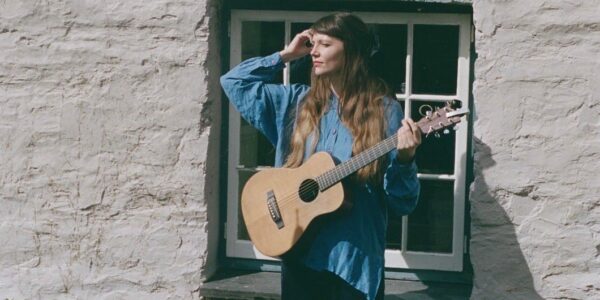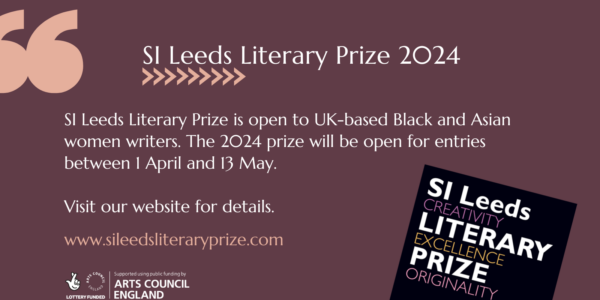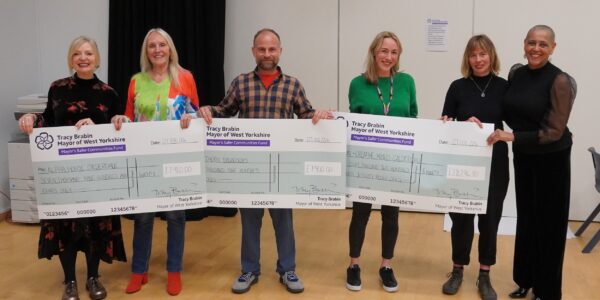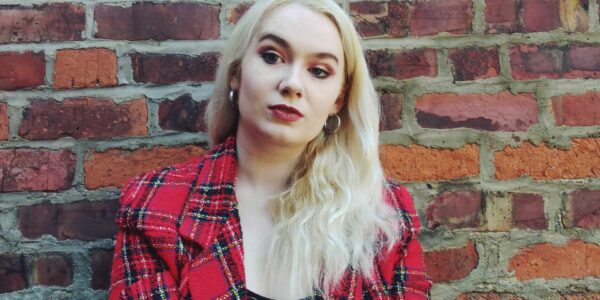Raymond Antrobus – The Stories We Tell
18 Oct 2019 / The Stories We Tell
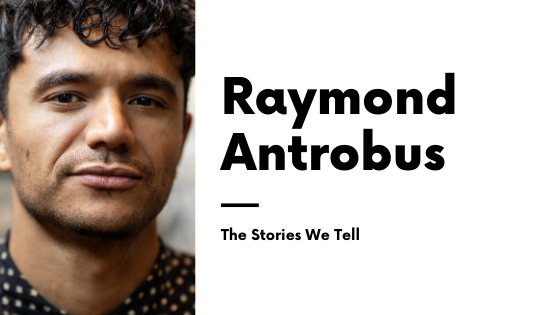
Beginning With A Line
The Northern Irish poet Michael Longley once said, ‘If I knew where poems came from, I’d go there.’ It’s a comforting thought for me. If Longley, after all his years as one of the most esteemed poets alive, hasn’t found the source of poetry, there is hope for us, and the search can continue.
How do we search for our poems? We read other poets. We align ourselves with their questions, their ideas of homeland and paradise, and their rhythms, all of which helps us form our own.
This summer was my second year as a Fellow of the Cave Canem Foundation, which prides itself on being ‘the home for Black poetry’. Poet and professor, Evie Shockley, asked me to name and ‘bring into the space’ a poet, someone my poetics are in conversation with. The question filled my head with flight paths, touching multiple continents, from the Caribbean (Walcott, Braithwaite, Binta-Breeze, Salkey) to Europe (Blake, Lorca, Mayakovsky, Kaminsky) to South America (Neruda, Paz), to North America (Espada, Olds, Brooks, Rankine). The thread that connects all these poets is that they are historians, witnesses. They speak, if not for, then with the people, their history and the land they were born in.
I was born in London to an English mother and a Jamaican father. I was educated in four very different schools, in four different parts of London – Hackney, Islington, Haringey and New Cross. My mother lived in a house, my father lived on a council estate, and I lived with each of them at different times. So language begins in multiple places for me. But let me go deeper and ask, where does my love of language begin, and how do I sustain it?
The earliest memory that comes to me now is a fight with my older sister in my mother’s living room. I am eight, my sister twelve. Like most arguments, in hindsight, I have no memory of what it was about – but the rage that hissed between us grew violent. My sister slapped me, my mother jumped between us, I retreated, and my sister screamed, slamming the door. The whole house shook.
I sat in my room and wrote stories to still myself. In these stories, I was a light brown pony. The Pony only wanted to eat grass and jump low fences. It would roam fields freely until the wild, heavy-hoofed horses appeared to trample it. These stories were part of an ongoing series. Let’s call it my earliest persecution projection.
It might’ve been hours, weeks, months or years later when my sister walked into my room, put her hand on my shoulder and apologised. She never apologised for anything, and I had no idea where it came from until I realised I’d left my book of terrible horses in the living room, face down on the sofa. My sister must’ve read it and seen a meaning in it that all our wailing and violence failed to translate. It changed our relationship, even if just for a moment, creating new mercies between us.
The poet Jay Parini said that ‘poetry offers depth of understanding’. Even if those stories weren’t poems, they required poetic thinking – metaphor – to write and receive. This is where my faith in language begins, in metaphor.
Metaphor has the power to renew our associations. In his essay ‘Why Look at Animals’ (1980), poet, painter and art critic John Berger writes about how much dissociation it requires for us to eat animals. He states that 20th-century corporate capitalism sold us a story, via advertising, one that reduces animals to a commodity, dulling our imaginations. Berger examines an early modern, pre-17th-century history of human relationships with animals in which animals are ‘messengers’, ‘promises’, ‘gifts’, and ‘ancestors’. Berger argues that the reclaiming of the symbolic, metaphorical associations of animals enlivens our imaginations and brings us closer to living a more wholesome and fuller truth. It is the kind of truth that Longley and other visionary poets seek; the place of new and deeper meanings, even for the simplest of nouns, ‘cow’, ‘bird’, ‘horse’.
My love of language, however, begins with sound. My first favourite joke was ‘Can you say “Beer can” without sounding like a Jamaican saying “Bacon”?’ My first favourite bedtime story was Happy Birthday, Moon because of how my father read it. I would lie on his chest, feeling the deep vibration of his voice while he performed it out loud. My love of poetry is wrapped in the memory of my father playing cassette tapes of Jamaican poets like Linton Kwesi Johnson, and of Miss Lou reciting poems in Patois. It is the joy and catharsis in those poems, and in the soulfulness of my laughing father as we listened and he stroked the hair below his bottom lip. What makes it bittersweet is that my father didn’t know I was deaf. We were laughing and reciting along to the poems, then laughing at my garbled attempt at ‘Island speak’, which was me trying to say my name in the rhythm of the poem: ‘reh-reh-reh, reh-reh-hund’.
One day he bought a poster with a poem on it called ‘The Song of the Banana Man’ by Evan Jones. With the poster pasted on my bedroom wall, I sat on his lap and we recited along: ‘Praise God an m’big right han / I will live an die a banana man’. My father was born, the son of a butcher, in rural Jamaica, and the poem, told from the perspective of a farmer, speaks to his land of high hills and tall banana trees and clothes soaked through with rain. The refrain of ‘I will live and die a banana man’ was delivered simultaneously in our joyful voices, chorused high as a ballad.
My father could recite poems by Wordsworth, which he’d learned in his school in Jamaica. ‘I wandered lonely as a cloud / That floats on high o’er vales and hills’ would roll off his tongue with such joyful fluidity as he remembered his school days. He’d raise his hands in the air, a roll-up cigarette between his fingers… “When all at once I saw a crowd /A host, of golden daffodils”.
The thought that, years later, the reverse would happen, that he would be in England, with a British son, reciting a poem written from his Island, there’s something wholesome and satisfying in this. I want to claim it now, to lay it down, with my hands in the air and say, this is what has brought me here to the land of poetry, this is where my love of language begins.
Find out more about The Stories We Tell.
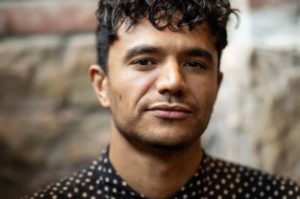 Raymond Antrobus was born in Hackney, London to an English mother and Jamaican father. His poems have been published in POETRY, Poetry Review, the Guardian, the News Statesman, The Deaf Poets Society, as well as in a variety of anthologies. It has been broadcast on BBC 2 and BBC Radio 4. He is the author of the chapbooks Shapes & Disfigurements and To Sweeten Bitter, and the collection, The Perseverance, which, in 2019, was awarded the Rathbone Folio Prize, the Somerset Maugham Award, and the Ted Hughes Award. Antrobus is the recipient of fellowships from the Cave Canem Foundation, Complete Works 3, and Jerwood Arts & Arts Council England. He is also one of the world’s first recipients of an MA in Spoken Word Education from Goldsmiths University, and has read and performed his poetry at various festivals (Glastonbury, Latitude, BOCAS) and universities (Oxford, Goldsmiths, Warwick).
Raymond Antrobus was born in Hackney, London to an English mother and Jamaican father. His poems have been published in POETRY, Poetry Review, the Guardian, the News Statesman, The Deaf Poets Society, as well as in a variety of anthologies. It has been broadcast on BBC 2 and BBC Radio 4. He is the author of the chapbooks Shapes & Disfigurements and To Sweeten Bitter, and the collection, The Perseverance, which, in 2019, was awarded the Rathbone Folio Prize, the Somerset Maugham Award, and the Ted Hughes Award. Antrobus is the recipient of fellowships from the Cave Canem Foundation, Complete Works 3, and Jerwood Arts & Arts Council England. He is also one of the world’s first recipients of an MA in Spoken Word Education from Goldsmiths University, and has read and performed his poetry at various festivals (Glastonbury, Latitude, BOCAS) and universities (Oxford, Goldsmiths, Warwick).
